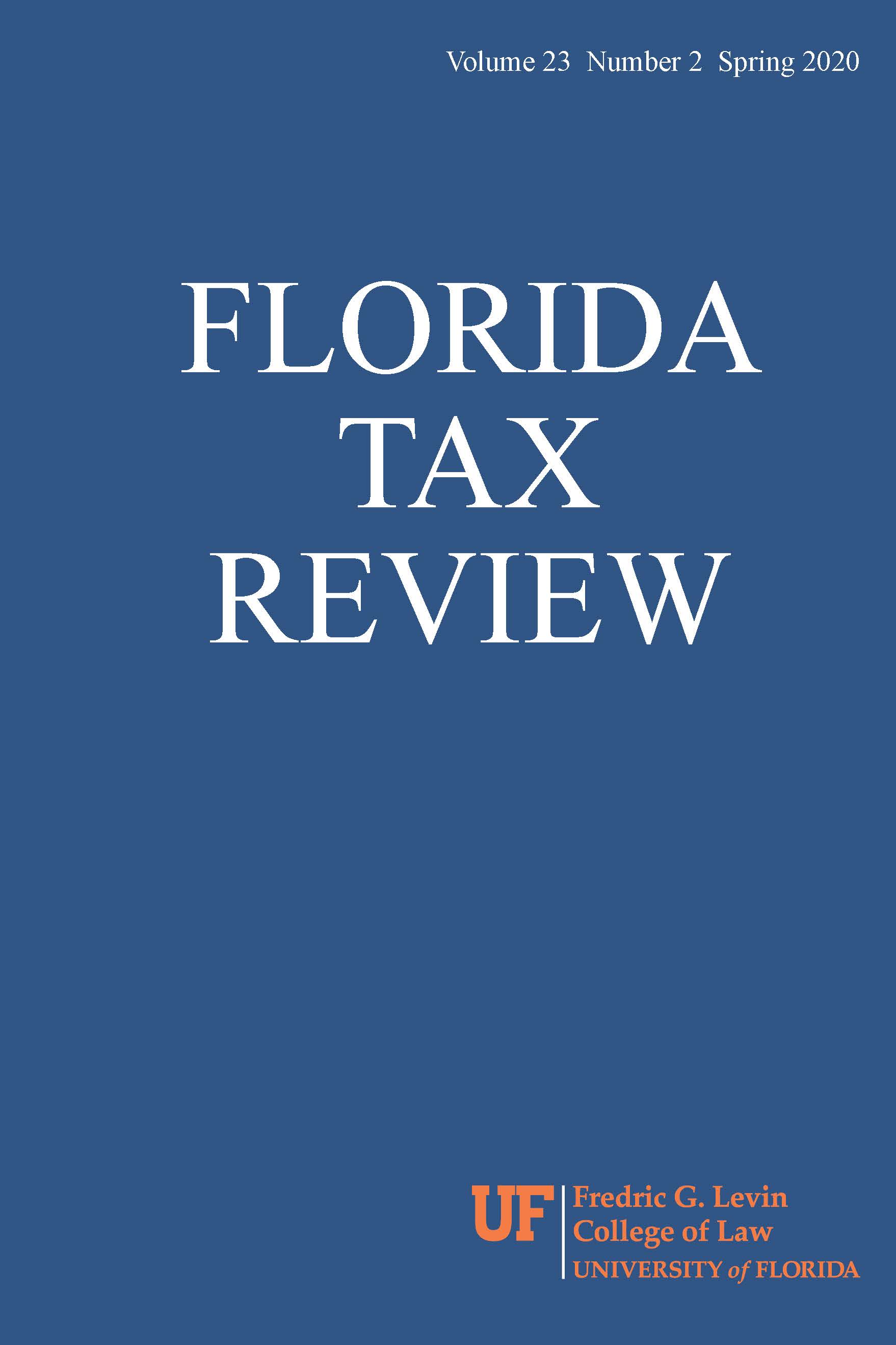Capital, an Elusive Tax Object and Impediment to Sustainable Taxation
Main Article Content
Abstract
Sustainable taxation requires stability and predictability. Sustainable taxation is a tax or taxes that collect sufficient revenue to support the governmental goods and services the society needs and wants. The taxes must provide for: 1) even-handedness—something akin to horizontal equity; 2) distributional fairness—a
concept emerging from notions of vertical equity; 3) transparency in application so that the populace understands and accepts the tax and the need for it; and 4) collection mechanisms that do not favor some societal groups, especially those with resources to secure creative tax advisors, over others who lack the resources. Narrow base taxes—fuel, alcohol, tobacco—cannot meet these criteria and the broad base taxes currently applicable—value added, payroll, and income—also
fail to meet one or more of the criteria. While specialized taxes like environmental taxes and sin taxes—alcohol, tobacco—serve useful regulatory functions and may achieve their behavioral objectives in part, they do so primarily by increasing the cost of engaging in the undesirable behavior and pricing some actors out of the activity. Using a pricing rather than a direct regulatory mechanism, the specialized taxes change the conversation from social rejection of the behavior to acceptance as long as the actor is willing and able to pay the high price. Is it all right to pollute if one pays to do so? Direct regulation might prove less regressive and less likely to be viewed as simply a matter of price and more as a matter of societal mainstream and commitment to addressing a problem.
To secure sustainable taxation this Article recommends a non-preferential income tax on a comprehensive income tax base. While by no means a new idea, the growing resource disparity between affluent individuals and individuals with limited resources renders the idea of a non-preferential income tax on all income including realized and unrealized gains all the more compelling. This Article outlines a method for transition to the recommended tax base from the current realization-based tax base and suggests that in limited cases a taxpayer might defer payment of tax on some items of income but not defer inclusion of the items in the tax base. As it describes its tax plan, this Article reflects on the objectives and shortcomings of the targeted taxes and purposive tax base modifications that have proliferated during the 20th century. This Article concludes that a non-comprehensive tax base may accomplish narrow objectives successfully but is unlikely to become functionally sustainable to support essential governmental goods and services. Neither are targeted taxes and purposive tax base modifications fully justifiable. They are likely to distribute tax burdens unevenly among taxpayers without any compelling reason for preferring some taxpayers to others. The narrowness of the base of such taxes frequently leads to regressive tax incidence.

